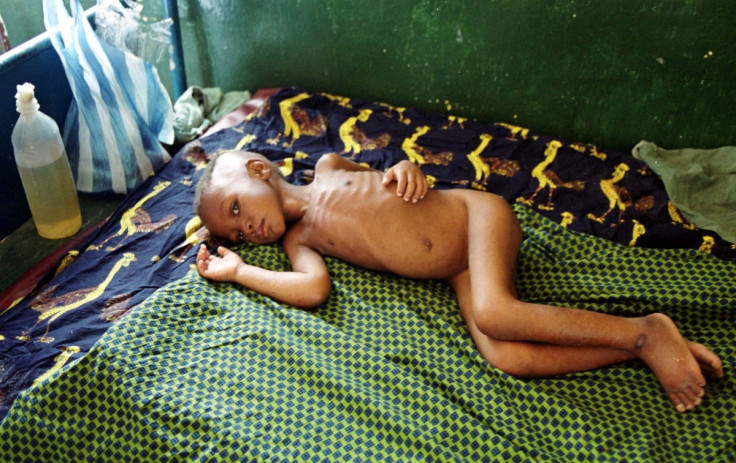DRC: As help reaches Madaya, 7.5 million people in Congo also need humanitarian aid

On the same day that the first shipment of foreign aid in three months reached Madaya to bring relief to some 40,000 suffering people on 11 January, the UN warned that 7.5 million people in the Democratic Republic of Congo (DRC) are in need of humanitarian assistance, including food. Nearly half of the children under the age of five are chronically malnourished and some five million people have restricted or uncertain access to a sufficient amount of food.
Malicious international interference, ethnic tensions and the fight for control over land and minerals over decades have left many of the country's population in a desperate state. "A complex and protracted crisis of massive proportions has created humanitarian needs for 7.5 million people, or 9% of the population," a report from the UN's Office for the Coordination of Humanitarian Affairs (OCHA) said.
"Decades of successive shocks have intensified humanitarian needs, leaving a higher proportion of the population vulnerable to the multiple shocks caused by conflicts, epidemics, malnutrition and natural disasters," the report continued. Children are at an elevated risk of contracting measles or cholera as they contend with an inadequate diet and safe drinking water, which is available to less than a quarter (22%) of the DRC's population.
The OCHA has said that £476.8m ($690m) is needed to help six million people this year. On average, 3,000 people a day were displaced in the DRC, according to the report.
Election-related human rights violations
The DRC is scheduled to hold presidential elections in November this year, but it finds itself in the company of a number of African countries whereby the incumbent – President Joseph Kabila in this case – is unconstitutionally seeking to extend their term in office. Having been in power since 2001, Kabila is now calling for a "national dialogue" despite a government crackdown on opposition protests in January 2015 in which 40 people were killed. Activists and political opponents of Kabila have also been unlawfully detained, with 649 people arbitrarily held in connection with the electoral process between January and September 2015.
"The rise in human rights violations in the run-up to the forthcoming elections raises concern that the security situation could deteriorate if the political crisis deepens, worsening the already dire humanitarian needs," the report said.
The report added that conflicts in neighbouring nations such as the Central African Republic (CAR) and Burundi – which has also been plagued by bloody violence directly related to President Nkurunziza's third term in office – are a source of instability in the DRC, which has received some 250,000 refugees and asylum seekers. "In 2016, DRC is likely to continue receiving refugees and asylum seekers from neighbouring countries, while also facing internal pressures," the report noted.
Battle for control of the DRC
Check out our Flipboard magazine - Who's who in the battle for DRC by IBTimes UK
In this series on the Democratic Republic of the Congo, IBTimes UK takes a closer look at the eastern regions of South and North Kivu where civilians are still at the mercy of armed groups and the Congolese armed forces, who have all been accused of committing serious war crimes.
© Copyright IBTimes 2025. All rights reserved.






















